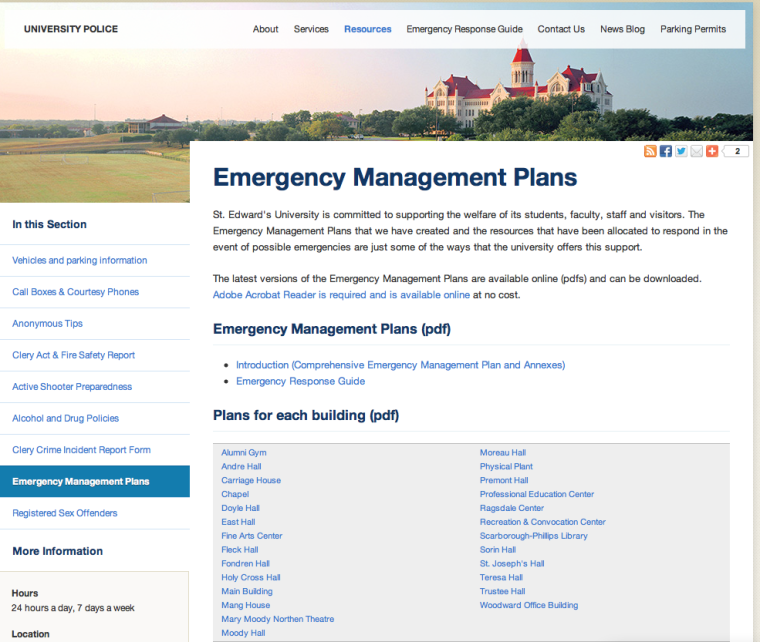Increase in university bomb threats encites stricter laws
The Notification of Penalty for False Alarm or Report law was revised to elevate a false report to a Class A misdemeanor, which can lead to imprisonment. This change is to address the numerous bomb threats that universities face each year nationwide.
A Class A misdemeanor is punishable by a fine not to exceed $4,000, confinement in jail for a term not to exceed one-year or a combination of both a fine and imprisonment.
The law also states that institutions of higher education must notify all students of the penalty for the offense, but a subsection expresses that private or independent institutions are not required to comply.
Since St. Edward’s University is a private institution, university police and other offices have chosen to comply with this subsection, and they investigate and treat all reports seriously.
“A lot of bomb threats come up during midterms and finals, because someone is ill prepared and they think a bomb threat will get classes cancelled. Maybe it will or maybe it won’t. It is never known if a report is false, so for this reason we take all threats seriously. We investigate all threats, and we react to all threats,” Police Capt. Dan Beck said.
The last time St. Edward’s received bomb threat was on April 17, 2007, which was the day after the Virginia Tech massacre. A threatening note was found that caused the university to evacuate several buildings on campus. At the same time, the University of Oklahoma faced a similar threat. This case at St. Edward’s remains open.
“The Virginia Tech shooting set people off and led to copycats. However, the case is still open and there is a suspect, but we haven’t developed sufficient probable cause to get a warren for the arrest, “ Officer Beck said.
There is not specific policy in St. Edward’s code of conduct for false reports, but depending on the severity of the situation the University will also punish the student in question as deemed appropriate.
“Consequence could be any type of educational sanctions up to suspension. Educational sanctions can be from anything verbal or written reprimand, writing paper, or loss of housing. In the past there has been a number of suspensions, but it has been awhile since,” Associate Dean of Students Steven Pinenburg said.
A false report it is a disruption of university process and can lead to the harm of others for this reason emergency management plans were designed to respond in the event of an emergency like this. Each building at St. Edward’s has plans for safety procedures, and the plans are available online for faculty, staff and student to access.
“The emergency management plans are posted on the web for faculty, staff and students. These plans are in alphabetical order by building, and it is recommended that everyone on campus review each building emergency plans they either reside or have class in,” Beck said.
The Dean of Students and University Police take all reports in account and join together to ensure the welfare of each individual on campus and to dictate the penalties for each proceeding.
“St. Edwards University is a community where every department is in contact to ensure students safety and prosperity,” Pinenburg said.







